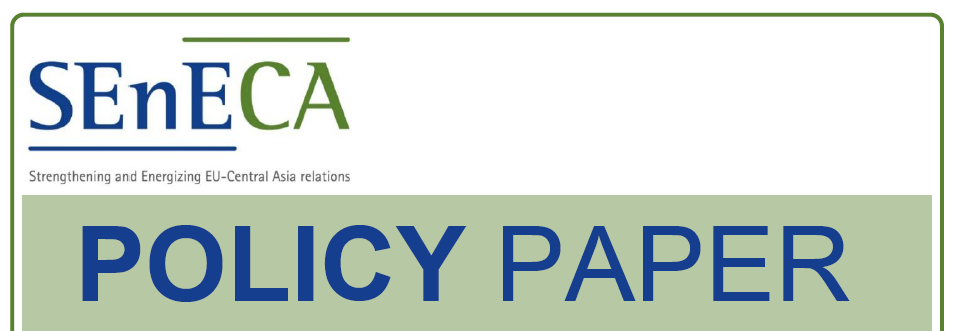The 2019 EU Strategy on Central Asia: SEnECA recommendations for implementation, Part I
This policy paper provides a reflection on the Joint Communication of the European Commission and the High Representative of the Union for Foreign and Security Policy to the European Parliament and the Council “The EU and Central Asia: New Opportunities for a Stronger Partnership” (hereafter – the 2019 EU Strategy on Central Asia). The paper contains a general assessment, recommendations and a SEnECA Scorecard of the tasks set forth by the Strategy. It also gives a more detailed assessment of the Strategy’s third part – “Working better together” and offers recommendations on its implementation.
The 2019 EU Strategy on Central Asia is a timely and necessary document during the period of changes in Central Asia. It is setting out a comprehensive approach and it signals a clearer understanding of the region, putting the emphasis on “working together” instead of “teaching how to live”. It also gives due attention to the expanding regionalisation trends and Afghanistan as a shared source of risks and opportunities. On the other hand, the strategy signals less ambitions compared to some expectations. The narrative of the EU’s approach is unclear since many tasks mentioned are rather general. Methods and tools for measurement and the underpinning financial resources for the implementation seem to fall short of the necessity. The potential of cooperation with the EU member states and like-minded external actors has not been sufficiently addressed. Also, insufficient emphasis on universal human rights upsets some in the EU and Central Asia, whereas too much emphasis on Afghanistan upsets others in the region.
The aim of the SEnECA experts’ assessment is to support the implementation of the new strategy as constructively and concretely as possible.
Vorschau

Zitieren
Rechte
Nutzung und Vervielfältigung:
Dieses Werk kann unter einer Creative Commons Namensnennung - Nicht kommerziell 4.0 Lizenz (CC BY-NC 4.0)
Creative Commons Namensnennung - Nicht kommerziell 4.0 Lizenz (CC BY-NC 4.0)
genutzt werden.
